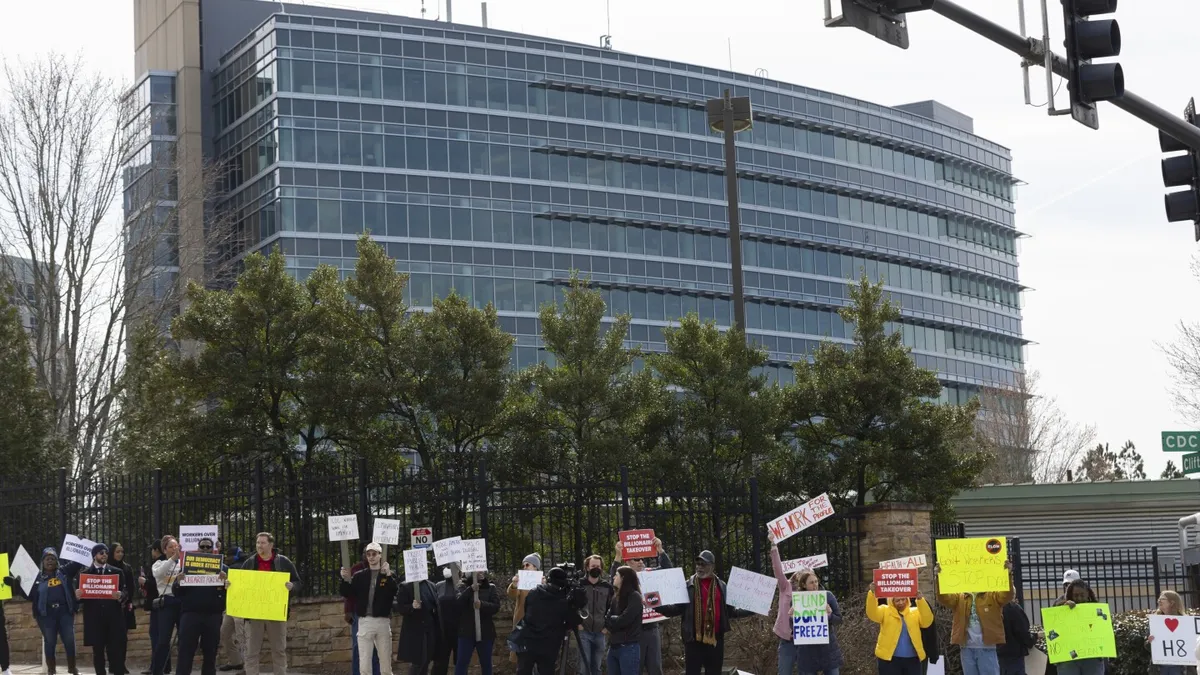
A federal judge in San Francisco ruled on Thursday that the mass firings of probationary employees by the Trump administration were likely unlawful. This decision provides temporary relief to a coalition of labor unions and nonprofit organizations that have filed a lawsuit aimed at halting the administration's aggressive efforts to dismantle the federal workforce. U.S. District Judge William Alsup ordered the Office of Personnel Management (OPM) to notify various federal agencies that it lacks the authority to mandate the termination of probationary employees, particularly at the Department of Defense.
During the ruling, Judge Alsup emphatically stated, “OPM does not have any authority whatsoever, under any statute in the history of the universe,” to hire or fire employees beyond its own staff. The lawsuit, initiated by five labor unions and five nonprofit organizations, is part of a broader legal fight against the administration's attempts to reduce a workforce that President Trump has described as bloated and sloppy.
While attorneys for the government acknowledged that the OPM does not possess the authority to directly hire or fire employees across different agencies, they argued that the OPM had merely requested agencies to assess the suitability of probationary employees for continued employment. They emphasized that probationary employees do not have guaranteed positions, stating that only the highest-performing and mission-critical individuals should be retained. Kelsey Helland, an assistant U.S. attorney, remarked, “I think plaintiffs are conflating a request by OPM with an order by OPM.”
Following the hearing, attorneys representing the coalition celebrated the ruling, although they clarified that it does not guarantee the reinstatement of previously terminated employees nor does it prevent future firings. Danielle Leonard, an attorney for the coalition, noted, “What it means in practical effects is the agencies of the federal government should hear the court’s warning that that order was unlawful.” Everett Kelley, the national president of the American Federation of Government Employees, described the ruling as a significant victory for those who were unlawfully terminated, highlighting that these workers had dedicated themselves to serving their communities.
Judge Alsup expressed particular concern over anticipated firings within the Department of Defense. He ordered the acting head of the OPM, Charles Ezell, to testify regarding a phone call on February 13, during which agency heads were instructed to terminate probationary employees. Alsup remarked, “The agencies could thumb their noses at OPM if they wanted to if it’s guidance, but if it’s an order, or cast as an order, the agencies may think they have to comply.”
With an estimated 200,000 probationary employees across federal agencies, including approximately 15,000 in California, the implications of these firings could be far-reaching. These employees provide essential services, from fire prevention to veterans’ care. The lawsuit claims that many employees received template emails stating their termination was due to performance issues, despite some agencies indicating they wished to retain their workers but were overruled by the OPM.
The coalition of unions has faced challenges in other courts as well. Recently, a judge in Washington, D.C., denied a motion from unions seeking to temporarily block layoffs, suggesting that their case should be pursued in federal labor court. Additionally, a judge in Massachusetts ruled that unions lacked standing in a separate lawsuit concerning a deferred resignation offer. Judge Alsup noted that while labor unions might not have legal standing to sue, the nonprofit organizations likely have a legitimate case due to the impact of workforce reductions on essential government services.
In his remarks, Judge Alsup characterized probationary employees as “the lifeblood of our government,” emphasizing their role as a vital segment of the workforce. He criticized the practice of terminating these employees for poor performance without proper justification. Known for his straightforward approach, Judge Alsup, appointed by President Bill Clinton, has presided over numerous high-profile cases, including significant environmental issues involving Pacific Gas & Electric.
The judge plans to issue a more detailed written order, with an evidentiary hearing scheduled for March 13, as this legal battle continues to unfold in the courts.